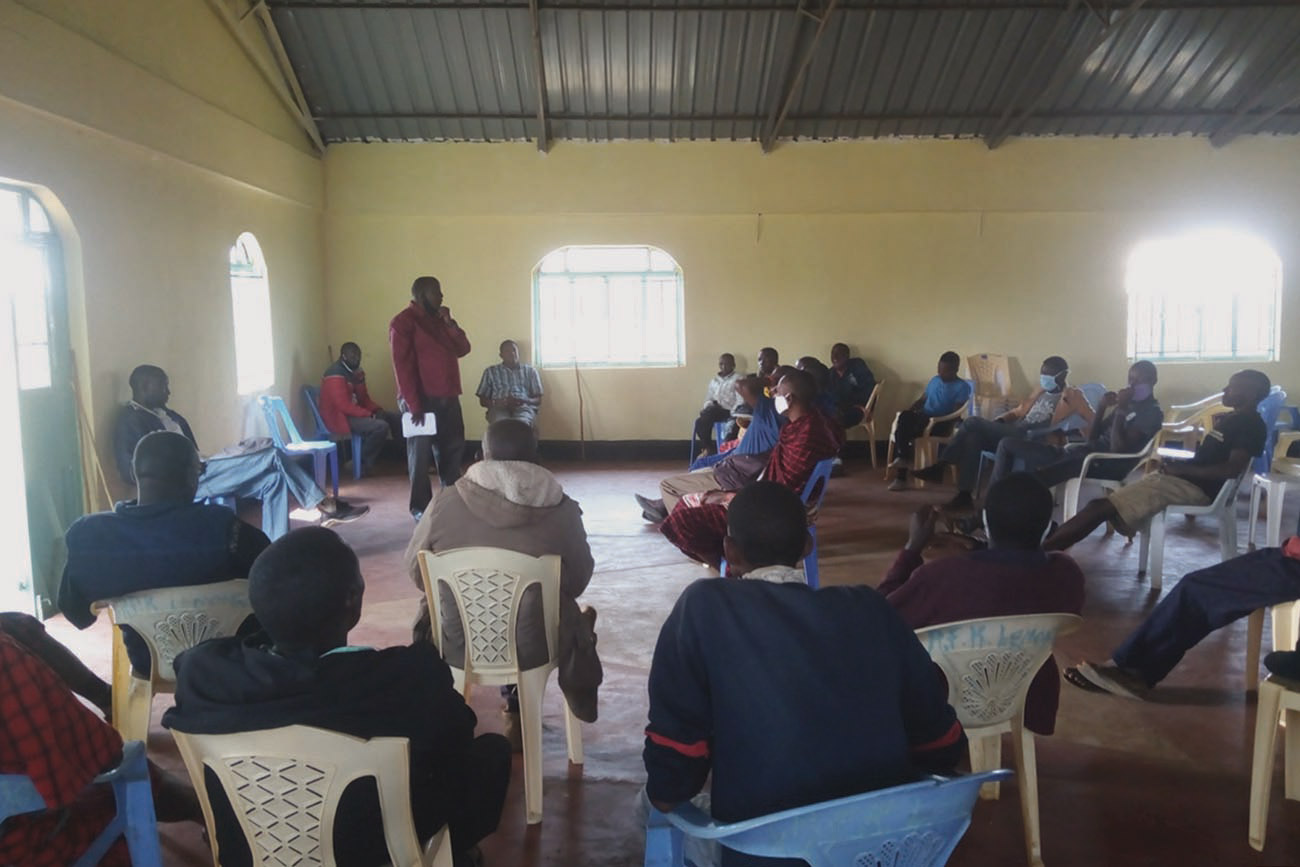 Myths and misinformation about sexual health can be challenging to correct, as such beliefs are deeply rooted in cultural traditions. This is as true for the Maasai as it is for any rural community. The health of any ecosystem depends on setting the record straight.
Myths and misinformation about sexual health can be challenging to correct, as such beliefs are deeply rooted in cultural traditions. This is as true for the Maasai as it is for any rural community. The health of any ecosystem depends on setting the record straight.
To that end, Big Life’s Community Health Volunteers (CHVs) and the Ministry of Health Community Health Assistant have hosted 36 Dialogue Days, meetings which bring together community leaders, gender groups, and/or specific age sets to discuss health issues in a safe environment. These community dialogue meetings allow for concerns and opinions to be voiced, and in turn for health professionals to respond, providing explanations and helping to dispel myths, particularly around sexual health.
Initially, these meetings were focused largely on men, as without their permission, it is very difficult for wives and daughters to access not only family planning, but any reproductive health services, such as antenatal care, assisted delivery, and cervical cancer and STI screening. Recognizing that women and youth need these meetings too, Dialogue Days have expanded to include them. In time, we hope to involve husbands and wives in couples’ meetings together.
These conversations are desperately needed and are helping to bring about positive changes for the Maasai as individuals and as a community, as evidenced by powerful testimonials.
One example is a man we’ll call John, a 48-year-old man married to two wives, with 14 children between them. He is primarily a pastoralist and does some farming. His children all go to school, either at the secondary or primary level. John and his two wives never attended school, making it hard to monitor their children’s education. Regardless, he is very passionate about his children getting a formal education in order for them to have a better future. But having such a large family makes it very difficult to provide for their basic necessities.
After being walked through the importance of family planning both by our CHVs during household visits and at the dialogue meeting, he realized that his situation is currently experienced by almost everyone in his village and is due to a lack of family planning, which would have helped them space their children and be able to provide for them with ease. As a village elder, John says he will approve for his wives (who are still of reproductive age) to take up family planning. This way, his current children will be able to continue their education. He will also advise his own children and others who come to him for his counsel as an elder, on the importance of family planning.
We are grateful to our partners at CHASE Africa, the Leila and Mickey Straus Family Foundation, and our supporters around the world for investing in these vital community dialogue meetings for the benefit of all.
